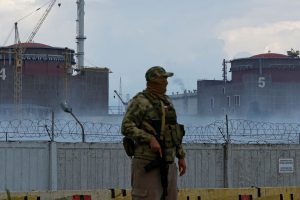Assessment of “The State” Within the Framework of International Climate Protection Law

The concept of state in international law has been changing philosophically over time and the case law has shaped this change in the field of climate change. This field, which has already begun to be known under the name of International Climate Protection Law, places some responsibilities on states. In particular, the United Nations Framework Convention on Climate Change (UNFCCC), dated June 4, 1992, signed by 165 states, along withthe Copenhagen Accord and the Kyoto Protocolhold great significanceto understand the course. From the legal point of view, in our opinion, Urgenda Foundation vs. Kingdom of the Netherlands constitutes an important milestone in the context of the climate – justice struggle. For this reason, we believe that it is correct to examine the concept of state in the context of climate change law through these two elements.
The UNFCCC is a non-binding intergovernmental agreement and more of a statement of intent. This agreement aimed atbringing states together for climate change and make the way for the creation of additional protocols in this direction. The Kyoto Protocol and the Copenhagen Accord which are some of the complements to the UNFCCC are decisive to our subject matter, that is the examination of the impact of climate change on the concept of ‘the state’ under international law.
In 1997, the Kyoto Protocol was signed in addition to the non-binding UNFCCC. Thus, legal norms were established in terms of international law. State parties to the Kyoto Protocol committed to reduce greenhouse gas emissions based on the scientific consensus that first, global warming is a reality and second, it is extremely likely that human-made CO2 emissions have predominantly caused it. 165 countries signed this protocol which entered into force in 2005, but the absence of Canada and the United States of America among these states has led to major reactions in the international community. The Protocol is based on the principle of common but differentiated responsibilities: it puts the obligation to reduce current level of emission on developed countries on the basis that they are historically responsible for the current level of greenhouse gases in the atmosphere.
The Copenhagen Accord, on the other hand, is an extensional agreement of the Kyoto Protocol. In simple terms, this agreement, which is not legally binding, aims to keep global temperature rise below 2°C, which is one of the main problems with regard to climate change.
One important and recent development concerning the international climate protection came from the Netherlands. Approximately900 Dutch citizens, lawyers andUrgenda, an environmental NGO, sued the Kingdom of the Netherlands before the District Court of The Hague. This legal processcan be summarized as follows: On 20 November 2013, 886 citizens together with the Urgenda Foundation working for the environmental protection and prevention of climate change in the Netherlands (hereinafter referred as “Urgenda” for convenience) filed an application to the Dutch Court with the request of holding the Dutch government responsible for its role in causing climate change. In summary, Urgenda states that humankind’s cumulative greenhouse gas emission, especially the high levels attained by carbon emissions, seriously alter the chemical structure of the planet’s atmosphere, leading to more heat retention and hence warming of the planet. Urgenda argued that this dangerous climate change would cause very serious and negative effects on humanity and on the Netherlands. Moreover, this global behavior and the Dutch contribution to it, threat the human rights such as the right to life as protected by the European Convention on Human Rights (ECHR) to be enjoyed in the both EU countries and the Netherlands. In short, it has been argued that contributing to the exceeding of the 2°C limit is a breach of a globally defined and recognized duty of care and in this context, it has been argued that the Netherlands has a proportionate and successive responsibility to prevent climate change. At the same time, Urgenda has shown that there are alternatives that can help to prevent the threats of fossil fuel-based energy production such as energy production based on renewable resources and that they are economically feasible. The Dutch Government has replied toUganda’s arguments by claiming that: (1) Urgenda has the right to represent the interests of the alive generations of Dutch citizens howeverUrgenda does not have the right to defend the rights or interests of alive and future generations of other countries. (2) The Dutch Government finds no legal norm on the basis of which it is legally bound to reduce greenhouse gas emissions. (3) The government states that whether and to what extent emissions should be reduced is a political question in which the courts should not intervene. As a result of the judicial reviews summarized above, the Court finds that the government’s statement to reduce emissions 17% insufficient to meet the criteria of the UN. Consequently, the Court ruled the Dutch government to reduce emissions to 25% below 1990 levels by 2020.
To sum up, when we examine the impact of climate change on the concept of ‘the state’ under international law, it should be taken into account that this branch of law is at its infancy by reason of this field of law is still developing.Hence it is conceivable to conclude that it is too early to have a definite judgment or an outcome. Nevertheless, when we look at the international and national regulations, the climate-promises in Europe which are being the subject to election campaigns and in particular the recent case of Urgenda Foundation vs. Kingdom of the Netherlands, it can be said that after the development of climate law states have started to admit their responsibilities in this area. It can be claimed from the political developments in recent years such as the 2017 French Presidential Election and the USA Presidential Election of 2016 that the responsibility of states will probably increase in the near future. It cannot be said that governments have used climate change as a criterion in the decision/law-making process before. However, this issue is not only a matter of political contention. Therefore, the process of law-making supported by academic studies should be initiated urgently.



